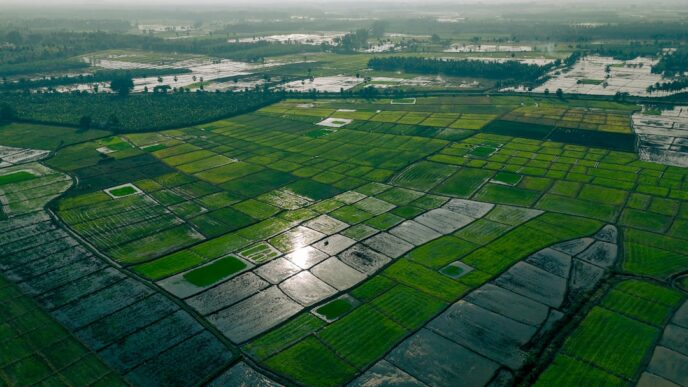As the world grapples with the dual crises of climate change and resource depletion, an alternative economic model is steadily gaining traction: the circular economy. While much attention has been focused on its potential in advanced economies, the Global South is poised to become a fertile ground for circular initiatives. Countries like Kenya and India are leading the charge, showcasing how they can turn challenges into opportunities.
In Kenya, the problem of plastic waste has reached staggering proportions, with an estimated 24,000 tons of plastic entering the ocean each year. The local government and organizations such as the Kenya Association of Manufacturers have begun to embrace a circular approach to tackle this issue. Initiatives like the “Plastic Waste Management Programme” promote recycling and encourage businesses to adopt sustainable practices. The goal is clear: transform waste into a resource, thereby reducing environmental impact while creating jobs within the community.
In a similar vein, India’s informal economy, which comprises over 80% of the workforce, presents unique opportunities for circularity. The country is already home to various informal recycling networks, but these operations often lack recognition and support. The government’s “Swachh Bharat Mission,” aimed at promoting cleanliness and waste management, could integrate these informal sectors into a formal framework. By doing so, India could enhance resource efficiency while providing livelihoods for millions engaged in waste collection and recycling.
Furthermore, the circular economy is not just about waste management; it involves rethinking entire production and consumption cycles. In sectors such as textiles, which is notorious for its environmental impact, initiatives like the “Sustainable Apparel Coalition” are emerging. These organizations focus on creating a more sustainable supply chain by encouraging manufacturers to innovate through material reuse and more efficient production methods. As emerging markets become increasingly integrated into global supply chains, adopting circular principles could enhance their competitiveness while simultaneously addressing sustainability challenges.
Challenges remain, of course. Access to financing and technology often hinders the development of circular models, particularly in rural areas. However, innovative financing solutions such as microcredit, supported by organizations like the Grameen Bank, can provide the necessary capital for small businesses. These businesses can then invest in sustainable practices, thus creating a ripple effect that benefits both the economy and the environment.
Policymakers also play a crucial role. Countries like Rwanda have made strides in reducing plastic waste through stringent regulations, proving that political will can catalyze change. If they set ambitious targets for circularity, it could motivate both businesses and consumers to shift their behavior. Governments can incentivize businesses to adopt circular practices through tax breaks or grants, making it financially viable for them to invest in sustainability.
As the circular economy continues to take root, the potential for growth and innovation in emerging markets is significant. By prioritizing sustainability, nations in the Global South can not only address pressing environmental issues but also create economic opportunities that are both inclusive and resilient. This model demonstrates that the path to a sustainable future is not a burden but an opportunity—a chance to reimagine how economies function in harmony with nature.













